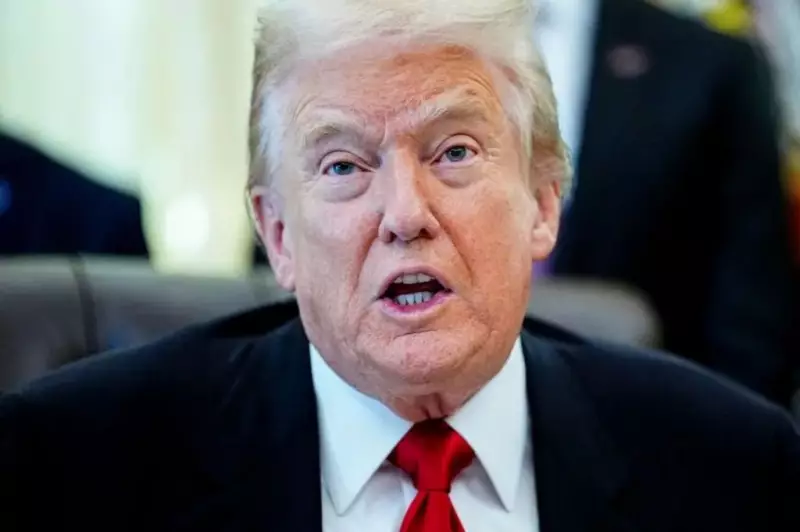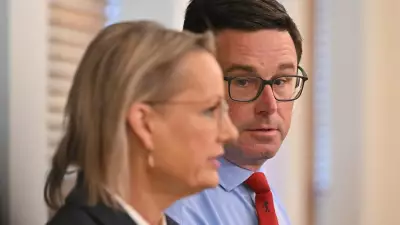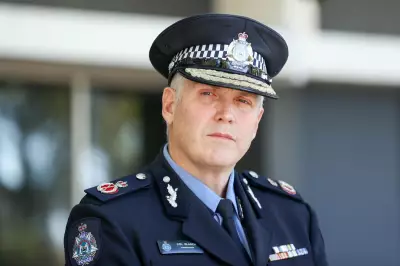
Two top BBC executives have abruptly resigned following a controversial edit made to a Donald Trump speech that aired on the broadcaster's channels. The incident has ignited a fierce debate about media integrity and political bias within one of the world's most respected news organisations.
The Controversial Edit That Sparked a Crisis
The crisis unfolded after BBC News edited a segment of a speech delivered by former US President Donald Trump. The edited version, which aired to Australian and international audiences, removed crucial context from Trump's remarks, fundamentally altering the perceived meaning and tone of his address.
According to internal BBC sources, the edit was not a simple trimming for time constraints but represented a significant alteration of the speech's substance. The decision to air the modified version came from senior editorial staff who have now borne the consequences of their judgment.
The edited segment quickly drew criticism from media watchdogs and political commentators who noted the discrepancy between the broadcast version and the full speech. Social media amplified the controversy, with many accusing the BBC of political bias and unethical journalism.
Key Players and Immediate Fallout
The resignations involve two high-ranking BBC executives whose identities have been confirmed through official statements. Their departures were described as "with immediate effect," indicating the seriousness with which the BBC treated the breach of editorial standards.
BBC Director-General Tim Davie addressed the situation in a statement to staff, emphasising the corporation's commitment to impartiality. "We have clear editorial guidelines that were breached in this instance," Davie stated. "When we make mistakes, we must be transparent and accountable."
The incident occurred against the backdrop of increasing scrutiny of media coverage of political figures, particularly Trump, who has frequently accused mainstream media outlets of unfair treatment. This controversy has given fresh ammunition to critics who question the objectivity of established news organisations.
Broader Implications for Media Trust
This scandal raises significant questions about editorial processes at major news outlets and the pressures facing journalists in politically charged environments. The BBC, which operates under a royal charter requiring impartiality, faces particular scrutiny regarding how it handles coverage of divisive political figures.
Media ethics experts have noted that the incident comes at a sensitive time for journalism globally, with public trust in news media already under strain. The rapid resignation of senior figures suggests the BBC is taking aggressive steps to protect its reputation for fairness and accuracy.
Looking forward, the corporation has announced an internal review of editorial procedures to prevent similar incidents. This review will examine decision-making processes for political coverage and establish additional safeguards for sensitive content.
The timing is particularly awkward for the BBC as it navigates charter renewal discussions and funding negotiations with the British government. Critics of public broadcasting have seized on the incident to question the broadcaster's value and impartiality.
What Comes Next for the BBC?
In the aftermath of the resignations, the BBC faces both immediate and long-term challenges. The corporation must quickly appoint interim leadership while conducting a thorough search for permanent replacements. More importantly, it must rebuild trust with audiences who expect uncompromising impartiality from their public broadcaster.
The incident serves as a stark reminder of the intense scrutiny facing major media organisations in today's polarised political climate. For Australian viewers who rely on the BBC for international coverage, the controversy highlights the importance of transparent journalistic standards across all media platforms.
As the BBC works to restore confidence, the broader media industry will be watching closely. The outcome of this crisis could influence editorial policies at news organisations worldwide, reinforcing the critical importance of maintaining integrity in political reporting.





